'Chandra Shekhar used to say that some people may oppose such a decision from their mouth, but all will accept it from their heart as the best solution to the dispute.'
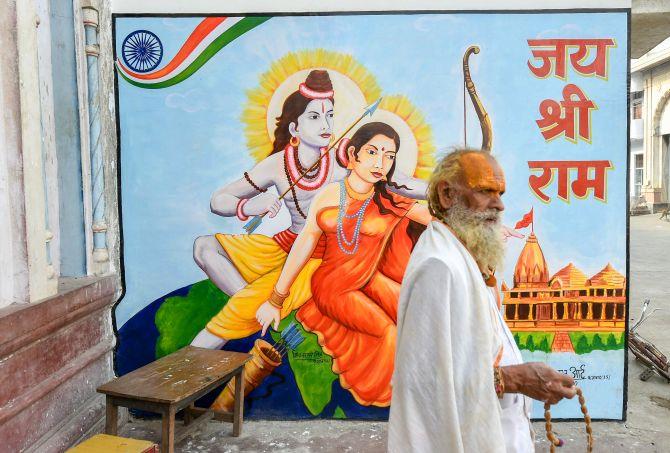
Kishore Kunal, a former Indian Police Service officer who was Officer on Special Duty (Ayodhya) in the early 1990s to then minister of state for home affairs Subodh Kant Sahay, was actively involved in the government-sponsored mediation in the Ayodhya dispute.
Kunal has also written two books on the Ayodhya dispute. In his first book, Ayodhya Revisited, he claimed it was Babur, not the founder of the Mughal empire, who has been blamed for demolishing the Ram temple in Ayodhya and constructing a mosque in in its place in 1528, but Fidai Khan, the governor of Ayodhya during Aurangzeb's reign, who was responsible.
In his second book, Ayodhya Beyond Adduced Evidence, he has brought forth some important evidence on the dispute.
Kunal, a 1972 batch IPS officer, took voluntary retirement and jumped into philanthropic work in the early 2000s.
Calling himself a very religious man since childhood, he now heads the Patna-based Mahavir Mandir Trust that runs the largest cancer hospital in Bihar and two other hospitals. The trust is also constructing the world's largest Hindu temple, near Kesaria in Bihar's East Champaran district.
Sporting a saffron tilak on his forehead and a colourful gamcha around his neck, Kunal spoke M I Khan in Patna about the Supreme Court-mandated mediation efforts, before leaving for Ayodhya.
How do you see the scope for mediation between the contesting parties to the Ayodhya dispute?
I am an ashawadi (optimist) as far as any move for a peaceful solution to the Ayodhya dispute. A solution to the dispute is in the interests of the country and people.
I am always in favour of negotiations, talks and mediation between the contesting parties to the dispute, because it will solve the issue. I am again hopeful about it. But this time mediation is not directly between the contesting parties.
How binding is the mediators's recommendation on the litigants? Is it open to any of them to reject the conclusions?
No, it is not binding or mandatory at all. It is fully recommendatory.
The Supreme Court will find it helpful to deal with the case. The apex court will finally decide.
Could you recall the mediation in the 1990s during your role as OSD to the government?
My association with the Ayodhya dispute started officially in 1990, when I was made officer on special duty (Ayodhya) to the then minister of state for home affairs Subodh Kant Sahay in the central government led by then prime minister V P singh, and retained in the same post by his successor Chandra Shekhar.
During the tenure of the two prime ministers, several rounds of negotiations were held between representative organisations of the two communities.
Both contesting parties were present and actively participated in talks with us.
I still remember how Syed Shahabuddin, who head the All India Muslim Majlis-e-Mashawarat and Babri Masjd Action Committee, used to talk on this issue regularly. Similarly, Vishwa Hindu Parishad leaders were also involved in the talks.
Though nothing concrete came out of mediations during the V P Singh government at the Centre, during the short duration of Chandra Shekhar-led government, something concrete was about to be decided on the basis of the mediation to end the dispute, but his government ended or was ousted from power.
What concrete decision was then prime minister Chandra Shekhar about to take to solve the dispute?
I have mentioned it categorically in my second book Ayodhya Beyond Adduced Evidence.
Chandra Shekhar as PM had taken some decision and wanted to implement it to solve the dispute. Unfortunately, before he could do anything publicly, his government ended.
Chandra Shekhar used to say that some people may oppose such a decision from their mouth, but all will accept it from their heart as the best solution to the dispute.
Can you tell us about what was that decision?
As I told you, I have mentioned it in a paragraph in my book, it was that the Ayodhya dispute will be made a one-time exception and other disputed sites will not be raised or touched after that.
Muslims will leave the claim on Ayodhya with a written guarantee that there will be no claim on other sites.
After Chandra Shekhar, (then) prime minister P V Narasimha Rao did not make any serious effort to solve the dispute.
Do you think the use of the Ayodhya dispute for political gain is right?
I am against the use of religion in politics.
I am totally involved in religious affairs, I never talk on politics or take part in it.
Religion is for the good of all, there is no place for discrimination, revenge and violence.
Other than mediation, is there any way to resolve the Ayodhya dispute
Talking with each other is the easy and smooth way to resolve the Ayodhya dispute.
As someone who has studied the dispute, and who has been involved with finding a solution, what do you think is the best solution? How acceptable do you think it will be to all the litigants?
At the moment I cannot say what is the best solution when mediation over the Ayodhya dispute will start now.
I am also going to Ayodhya with my book Ayodhya Beyond Adduced Evidence.
I have collected 103 documents as evidence that were not presented before the court so far.
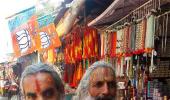
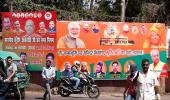
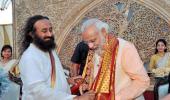
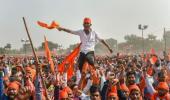
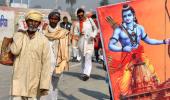






 © 2025
© 2025